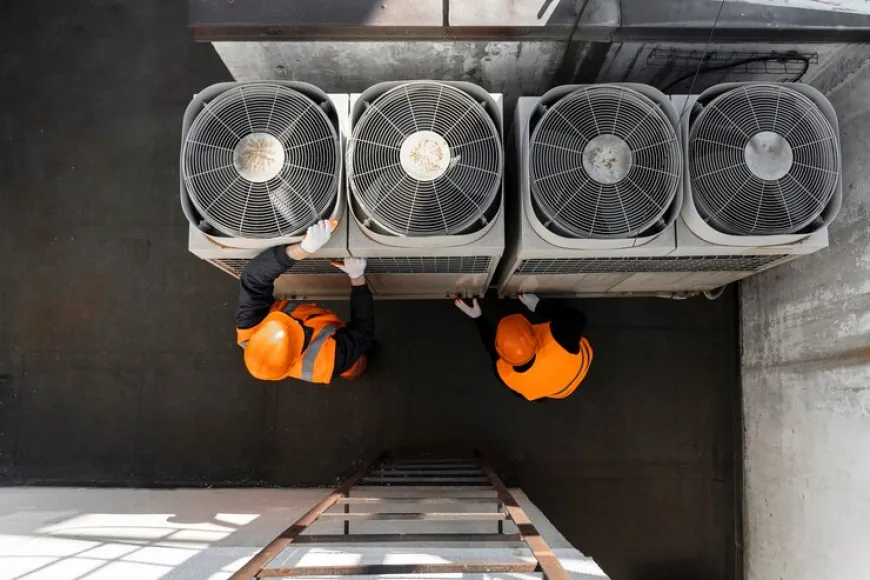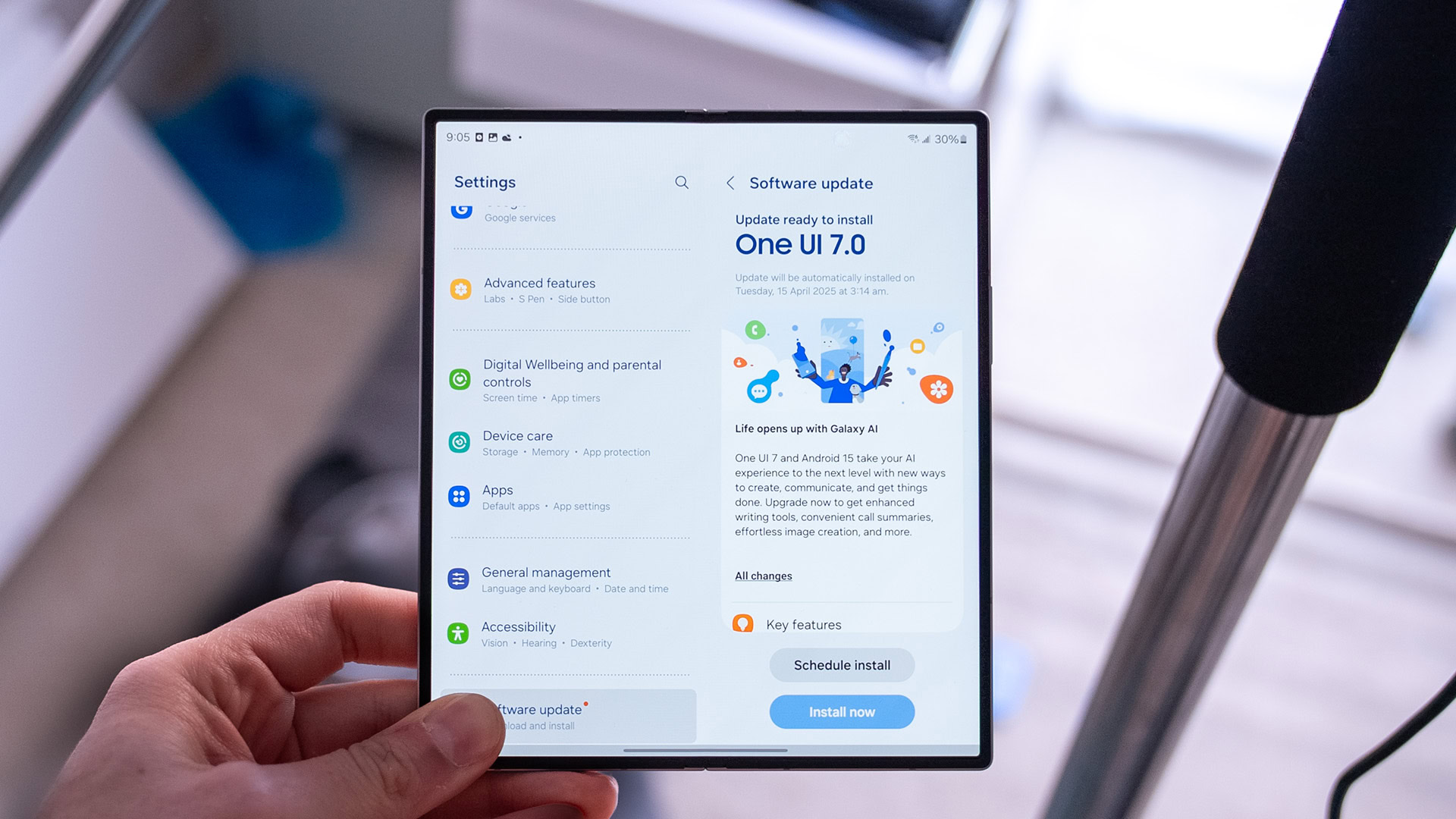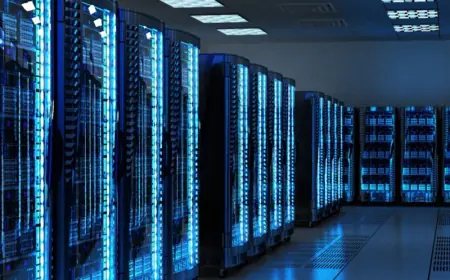Top 5 Ways to Lower Your Energy Bills with HVAC Upgrades
Keeping energy bills in check is a priority for many homeowners, and a large part of those bills often comes from heating and cooling. Investing in efficient HVAC upgrades can help you save energy and cut costs, while keeping your home comfortable year-round.

Top 5 Ways to Lower Your Energy Bills with HVAC Upgrades
Keeping energy bills in check is a priority for many homeowners, and a large part of those bills often comes from heating and cooling. Investing in efficient HVAC upgrades can help you save energy and cut costs, while keeping your home comfortable year-round. If you’re considering changes to your system, it’s best to consult an HVAC contractor to determine which options are right for your home. Here’s a look at some of the best upgrades to improve your HVAC system's efficiency and bring those energy costs down.
1. Upgrade to a Programmable or Smart Thermostat
One of the easiest ways to improve your system's efficiency is by upgrading to a programmable or smart thermostat. Unlike traditional thermostats, programmable and smart thermostats allow you to set schedules or make real-time adjustments, so your system only runs when needed. Many homeowners find that simply setting the temperature back by a few degrees during work hours or at night can yield noticeable savings on their bills. Smart thermostats go a step further by learning your habits, making automatic adjustments, and offering remote control from your smartphone, which can help you optimize your system's efficiency on the go.
2. Seal Ductwork and Insulate Properly
Ductwork is like the highway system for your heating and cooling; if it’s not functioning properly, conditioned air may not be reaching all parts of your home effectively. Air leaks in the ductwork can lead to significant energy loss and reduce the overall efficiency of your HVAC system. Having your ducts sealed and properly insulated helps keep the air flowing smoothly and efficiently, reducing the strain on your system and helping to lower your monthly energy bills.
Many HVAC professionals estimate that sealing and insulating ductwork can reduce energy consumption by 20% or more. Consider scheduling an inspection with a licensed contractor who can assess your ducts and recommend the best approach for sealing leaks and adding insulation where necessary.
3. Replace Old HVAC Units with Energy-Efficient Models
If your HVAC system is more than 10–15 years old, it may be time to consider an upgrade to a new, energy-efficient model. Modern HVAC systems are designed to meet stricter efficiency standards, which can significantly reduce your energy bills. When shopping for a new system, look for those with high SEER (Seasonal Energy Efficiency Ratio) ratings, as they’re more effective at conserving energy during the cooling season.
Energy Star-rated HVAC units, for example, use up to 30% less energy than standard models, making them a wise investment for long-term savings. Although the upfront cost may be higher, the energy savings over time can help offset the initial expense.
4. Maintain Regular HVAC System Servicing
Routine maintenance is essential to keep your HVAC system running smoothly and efficiently. Simple steps, such as changing filters regularly, cleaning the coils, and ensuring there are no blockages, can help improve your system's performance. Scheduling regular check-ups with a professional ensures that potential issues are identified early, preventing breakdowns and improving efficiency.
Having a certified technician service your system once or twice a year can also help extend its lifespan, which means fewer replacements and less energy waste over time. Regular maintenance may seem like an added expense, but it’s a cost-effective way to optimize your system and keep your energy bills low.
5. Improve Home Insulation and Weatherproofing
Even with the most efficient HVAC system, a poorly insulated home will lose conditioned air quickly. Ensuring your home is well-insulated and properly sealed is essential for keeping the heat or cool air inside, which reduces how hard your system has to work to maintain the temperature. Start by checking areas like the attic, windows, doors, and any other potential sources of drafts.
Adding insulation to your attic, sealing gaps around windows and doors, and using weatherstripping where needed can make a noticeable difference in your energy consumption. A well-insulated home keeps your HVAC system from overworking, leading to lower energy bills and a more comfortable living space.
Final Thoughts
Investing in energy-efficient HVAC upgrades can have a big impact on your energy bills and the overall comfort of your home. Whether you start with simple changes like adding a programmable thermostat or decide to install a new high-efficiency HVAC system, these upgrades will reduce your energy usage and help you save money over time. For the best results, consult with a professional HVAC contractor who can guide you on the right upgrades based on your unique needs and budget.
By making these strategic upgrades, you’re not only cutting down on energy expenses but also contributing to a more sustainable environment.
What's Your Reaction?
 Like
0
Like
0
 Dislike
0
Dislike
0
 Love
0
Love
0
 Funny
0
Funny
0
 Angry
0
Angry
0
 Sad
0
Sad
0
 Wow
0
Wow
0


















































